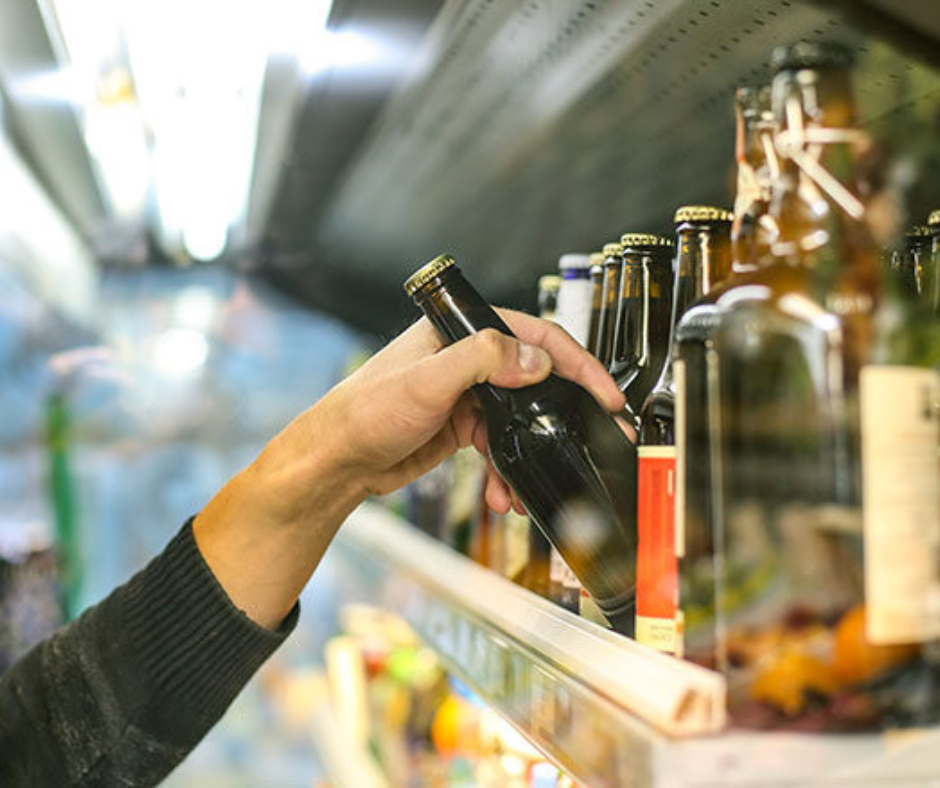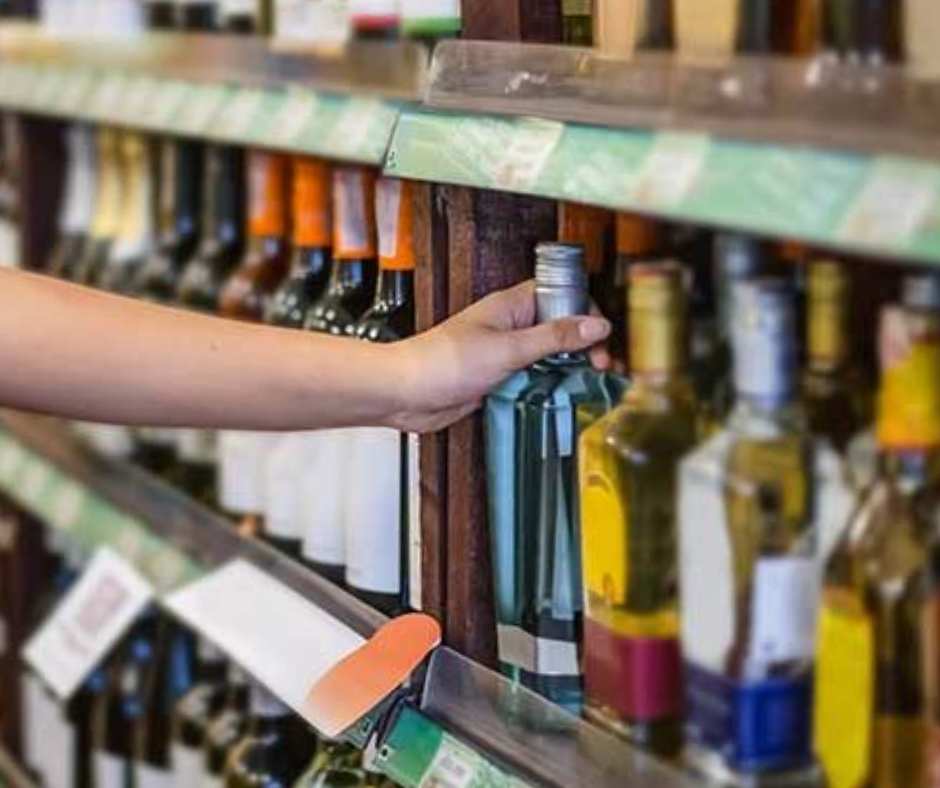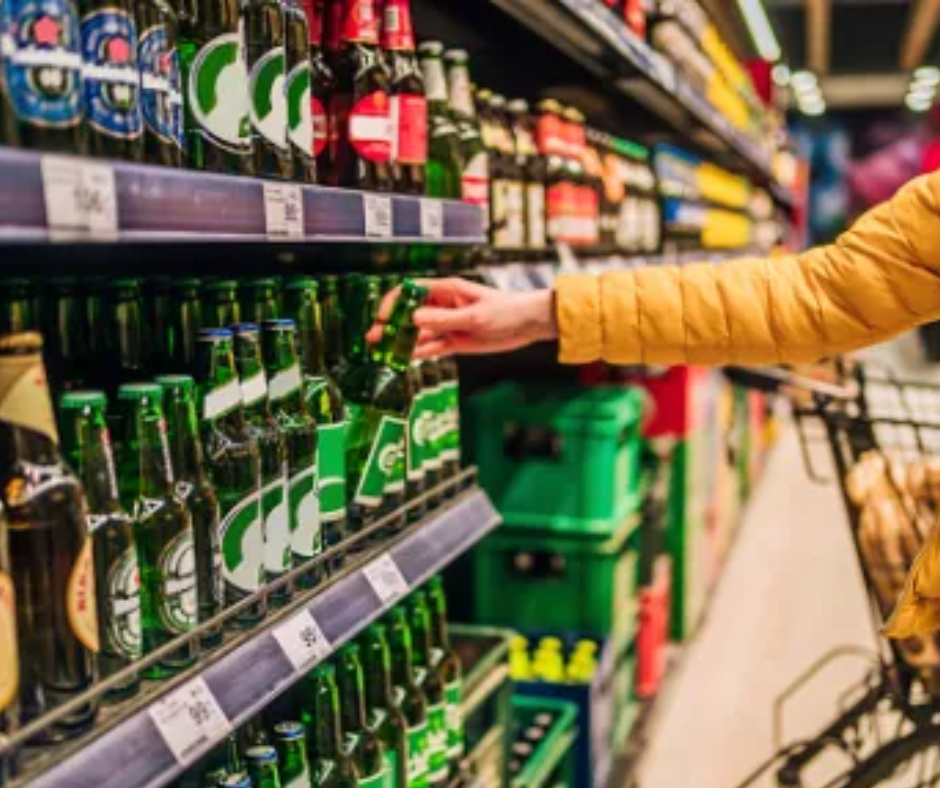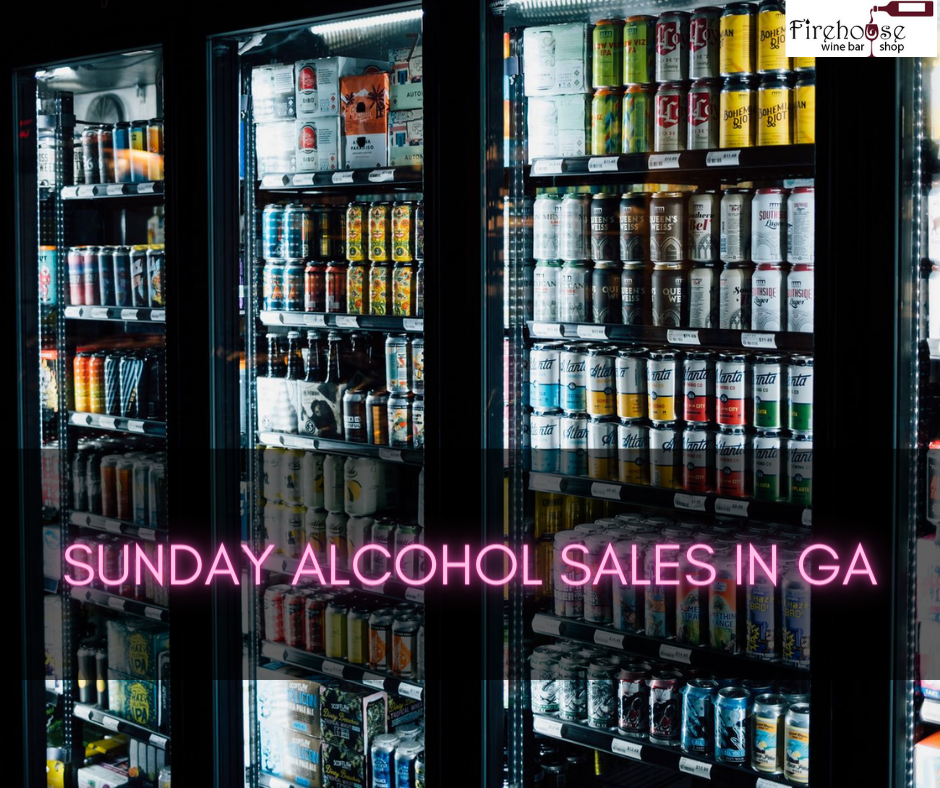Introduction
Overview Of Georgia’s Sunday Alcohol Sales Laws
The regulations surrounding Sunday Alcohol Sales in GA have evolved over the years. In the past, it was completely illegal to sell any alcohol on Sundays. However, in recent years, the laws have been relaxed to accommodate changing consumer demands and to boost the economy.
Currently, Georgia allows the sale of alcohol on Sundays, but certain restrictions are in place. The hours during which alcohol can be sold may vary depending on the type of establishment. For example, bars and restaurants can start serving alcohol at 11:00 AM on Sundays, while stores and markets are permitted to sell alcohol from 12:30 PM onwards.
It is important to note that these hours may differ in certain cities or counties within Georgia. Local ordinances can impose stricter regulations or even prohibit Sunday alcohol sales altogether. Therefore, businesses and consumers must be aware of the specific laws in their area.
The relaxation of Sunday alcohol sales laws in Georgia has been met with mixed reactions. Advocates argue that it provides greater convenience for consumers and promotes economic growth, as businesses can generate additional revenue on Sundays. On the other hand, opponents voice concerns about potential negative social and health implications.
To comply with the regulations, businesses in Georgia must obtain the appropriate permits and licenses to sell alcohol. They must also comply with responsible drinking laws and prevent underage sales. Failure to adhere to these rules can result in penalties and the revocation of licenses.
Overall, the laws of Sunday Alcohol Sales in GA reflect a balance between consumer demands and societal considerations. By providing opportunities for Sunday sales, the state aims to cater to the needs of its residents and support businesses while also maintaining responsible alcohol consumption practices.
As always, it is advisable for businesses and individuals to stay informed about the specific laws governing Sunday alcohol sales in their area and to act responsibly when consuming or selling alcohol on Sundays in Georgia.

The Previous Ban On Sunday Alcohol Sales in GA
Historical Background And Reasons For The Ban
In the past, Georgia enforced a complete ban on Sunday alcohol sales. This strict regulation was put in place due to historical and cultural reasons and religious influence. Many states in the United States had similar Sunday alcohol sale bans, as Sundays were traditionally regarded as a day of rest and religious observance.
The ban on Sunday Alcohol Sales in GA aimed to preserve a day of religious significance, promote family time, and discourage excessive drinking. It was believed that restricting access to alcohol on Sundays would prevent disruptive behaviors associated with alcohol consumption and allow individuals to focus on more wholesome activities.
However, as societal norms shifted and consumer demands changed, the ban faced growing criticism. Restrictions on Sunday Alcohol Sales in GA became increasingly seen as outdated and restrictive, impeding economic growth and inconveniencing residents and tourists.
Recognizing these concerns, Georgia gradually relaxed the laws surrounding Sunday alcohol sales. The state acknowledged the need to adapt to changing times while maintaining responsible alcohol consumption practices.
Today, businesses in Georgia are allowed to sell alcohol on Sundays, but there are still regulations. The specific hours during which alcohol can be sold may vary depending on the type of establishment and the city or county in which it is located. Bars and restaurants can typically start serving alcohol at 11:00 AM on Sundays, while stores and markets can begin selling alcohol from 12:30 PM onwards.
Local ordinances can impose stricter regulations or prohibit Sunday alcohol sales in certain areas. Businesses and consumers must be aware of the specific laws in their jurisdiction to avoid penalties and comply with responsible drinking practices.
By relaxing the ban on Sunday alcohol sales, Georgia aims to strike a balance between catering to consumer demands and ensuring responsible alcohol consumption. The state recognizes the importance of economic growth and convenience for its residents while prioritizing societal considerations and maintaining a sense of cultural heritage.
The Change In Legislation
How And When The Ban Was Lifted In Georgia
The ban on Sunday Alcohol Sales in GA, which had been in force for many years, gradually changed to accommodate residents’ and businesses’ evolving needs and preferences. The lifting of the ban was a complex process involving legislative actions, public opinion, and economic considerations.
In 2011, Georgia passed a law allowing local communities to vote on whether to allow Sunday alcohol sales. This gave individual counties and cities the power to decide whether to lift the ban within their jurisdiction. The law was met with mixed reactions, with some communities embracing the change and others maintaining the prohibition.
Over time, more and more communities opted to lift the ban on Sunday alcohol sales as they recognized the potential economic benefits. The availability of alcohol on Sundays brought increased revenue to businesses such as restaurants, bars, and convenience stores. It also catered to the changing lifestyles of residents, who sought the convenience of purchasing alcohol on Sundays.
As of today, the majority of counties and cities in Georgia have legalized Sunday alcohol sales, albeit with varying regulations. The specific hours alcohol sold on Sundays may differ between establishments and jurisdictions. Generally, bars and restaurants can start serving alcohol at 11:00 AM, while stores and markets can begin selling alcohol from 12:30 PM onwards.
Businesses and consumers need to familiarize themselves with the specific laws in their area to ensure compliance and responsible drinking practices. Local ordinances may impose additional restrictions or prohibit Sunday alcohol sales in certain areas.
The lifting of the ban on Sunday Alcohol Sales in GA reflects a shift towards a more consumer-centric approach, acknowledging the importance of economic growth and convenience for residents. At the same time, responsible drinking practices and cultural considerations remain at the forefront, ensuring a balance that caters to the community’s diverse needs.
Overall, the change in legislation regarding Sunday Alcohol Sales in GA represents a response to changing societal norms, economic considerations, and the desire to provide residents with increased choice and convenience in their alcohol purchases.

Georgia’s Sunday Alcohol Sales Laws
Restrictions And Regulations On Sunday Alcohol Sales
In recent years, Georgia has significantly changed its approach to Sunday alcohol sales. Previously, the state banned selling alcohol on Sundays, which had existed for many years. However, residents’ and businesses’ evolving needs and preferences led to reconsidering this ban.
Lifting the ban involved a combination of legislative actions, public opinion, and economic considerations. In 2011, Georgia passed a law that allowed local communities to vote on whether to allow Sunday alcohol sales within their jurisdictions. This gave individual counties and cities the power to decide independently.
Over time, more and more communities in Georgia recognized the potential economic benefits of lifting the ban. The availability of alcohol on Sundays brought increased revenue to businesses such as restaurants, bars, and convenience stores. It also catered to the changing lifestyles of residents, who sought the convenience of purchasing alcohol on Sundays.
As a result, most counties and cities in Georgia have legalized Sunday alcohol sales, although regulations may vary. The specific hours alcohol sold on Sundays may differ between establishments and jurisdictions. Generally, bars and restaurants can start serving alcohol at 11:00 AM, while stores and markets can begin selling alcohol from 12:30 PM onwards.
Businesses and consumers need to familiarize themselves with the specific laws and regulations in their area to ensure compliance and responsible drinking practices. Local ordinances may impose additional restrictions or prohibit Sunday alcohol sales in certain areas.
Overall, the change in legislation regarding Sunday Alcohol Sales in GA reflects a shift towards a more consumer-centric approach. It acknowledges the importance of economic growth and convenience for residents while ensuring that responsible drinking practices and cultural considerations remain a priority. This balance allows the community’s diverse needs to be met while promoting a safe and enjoyable drinking experience.
Benefits Of Sunday Alcohol Sales
Positive Impacts On Businesses And Consumers
Georgia’s decision to lift the ban on Sunday alcohol sales has had numerous positive impacts on both businesses and consumers. The change in legislation has created new opportunities for economic growth and convenience for residents while prioritizing responsible drinking practices.
For businesses such as restaurants, bars, and convenience stores, the availability of alcohol on Sundays has brought significant revenue increases. Sunday is a popular day for dining out and socializing, and being able to serve alcohol has attracted more customers and extended their operating hours. This has allowed establishments to cater to the changing lifestyles and preferences of residents who seek the convenience of purchasing alcohol on Sundays.
Moreover, the ability to sell alcohol on Sundays has provided a competitive advantage for businesses, especially those near state borders. Previously, residents in these areas often traveled to neighboring states where Sunday alcohol sales were permitted. Now, businesses in Georgia can retain more customers and benefit from increased sales.
On the consumer side, the availability of Sunday alcohol sales has brought added convenience. Residents can now purchase alcohol on Sundays without having to plan their purchases or cross state borders. This aligns with the evolving needs and preferences of the community, allowing them to enjoy their weekends more freely.
However, it is crucial to note that the positive impacts of Sunday alcohol sales should be balanced with responsible drinking practices. The legislation change acknowledges this balance by imposing specific regulations on when alcohol can be sold. Bars and restaurants can start serving alcohol at 11:00 AM, while stores and markets can begin selling alcohol from 12:30 PM onwards. These regulations aim to ensure that the sale of alcohol does not interfere with public safety or cultural considerations.
In conclusion, the legalization of Sunday Alcohol Sales in GA has brought numerous benefits to businesses and consumers. It has boosted revenue for establishments, created economic opportunities, and provided added convenience for residents. However, it is crucial to promote responsible drinking practices and adhere to each jurisdiction’s specific laws and regulations. By balancing economic growth and public safety, Georgia has enabled residents to have a safe and enjoyable Sunday alcohol sales experience.

Exceptions And Variations
Different Rules For Different Types Of Establishments
Regarding Sunday Alcohol Sales in GA, some specific rules and regulations vary depending on the type of establishment. Understanding these exceptions and variations is crucial for businesses and consumers alike.
Restaurants and bars are allowed to start serving alcohol at 11:00 AM on Sundays. This allows them to cater to customers looking to enjoy a drink during brunch or early lunch. It also extends its operating hours and attracts more customers who prefer to dine out on Sundays. This rule has been instrumental in boosting revenue for these establishments and creating a vibrant social atmosphere.
On the other hand, stores and markets have slightly different regulations. They can begin selling alcohol from 12:30 PM onwards on Sundays. This allows residents the convenience of purchasing alcohol later in the day without having to plan their purchases. It aligns with the changing needs and preferences of the community, ensuring that they can enjoy their weekends without any restrictions.
It’s important to note that these rules and exceptions are in place to ensure responsible drinking practices. The specific timing of alcohol sales on Sundays is intended to balance economic growth and public safety. By imposing regulations, such as time restrictions, Georgia aims to prevent any issues related to excessive alcohol consumption and maintain public order.
It’s also worth mentioning that different states may have varying regulations regarding Sunday alcohol sales. Georgia’s decision to lift the ban on Sunday alcohol sales has provided a competitive advantage for businesses, especially those located near state borders. Previously, residents in these areas often traveled to neighboring states where Sunday alcohol sales were allowed. Now, businesses in Georgia can retain more customers and benefit from increased sales.
In conclusion, the exceptions and variations surrounding Sunday Alcohol Sales in GA benefit businesses and consumers. The different rules for restaurants and bars compared to stores and markets allow for a diversified range of options for residents. At the same time, these regulations prioritize responsible drinking practices and ensure public safety. By understanding and adhering to these rules, businesses and consumers can maximize the opportunities from Sunday Alcohol Sales in GA.
Conclusion
Understanding the exceptions and variations surrounding Sunday Alcohol Sales in GA is essential for businesses and consumers. The different rules for restaurants and bars compared to stores and markets allow for a diversified range of options for residents. At the same time, these regulations prioritize responsible drinking practices and ensure public safety. By adhering to these rules, businesses and consumers can maximize the opportunities from Sunday Alcohol Sales in GA.
Summary Of Georgia’s Sunday Alcohol Sales Policies And The Impact On The Community
Georgia’s policies regarding Sunday alcohol sales play a crucial role in the state’s economic growth and the convenience of its residents. Restaurants and bars can start serving alcohol at 11:00 AM on Sundays, catering to customers looking to enjoy a drink during brunch or early lunch. This extended operating hour attracts more customers and boosts the revenue of businesses.
For stores and markets, alcohol sales commence from 12:30 PM onwards. This time difference allows residents the convenience of purchasing alcohol later in the day without having to plan their purchases. It aligns with the changing needs and preferences of the community and ensures they can enjoy their weekends without any restrictions.
The specific timing restrictions for Sunday Alcohol Sales in GA aim to balance economic growth and public safety. By imposing regulations, the state aims to prevent excessive alcohol consumption issues and maintain public order.
Comparatively, other states may have varying regulations regarding Sunday alcohol sales. Georgia’s decision to lift the ban on Sunday alcohol sales provides a competitive advantage for businesses, particularly those near state borders. Previously, residents in these areas often traveled to neighboring states where Sunday alcohol sales were allowed. Now, businesses in Georgia can retain more customers and benefit from increased sales.
In conclusion, Georgia’s policies surrounding Sunday alcohol sales create business opportunities and provide residents with convenience. Understanding and adhering to these regulations contribute to economic growth and prioritize responsible drinking practices and public safety.
FAQ: Sunday Alcohol Sales in GA – Sip on Sunday: Understanding Alcohol Sales on Sundays in Georgia
Q: Can I buy alcohol on Sundays in Georgia?
A: Yes, you can purchase alcohol on Sundays in Georgia. However, certain restrictions and regulations apply.
Q: Are all types of alcohol available for purchase on Sundays?
A: Yes, all types of alcohol, including beer, wine, and distilled spirits, can be sold on Sundays in Georgia.
Q: What are the permitted hours for buying alcohol on Sundays?
A: The permitted hours for alcohol sales on Sundays are from 12:30 PM to 11:30 PM.
Q: Can I buy alcohol from any store on Sundays?
A: Not all stores can sell alcohol on Sundays in Georgia. Only retail stores licensed to sell alcohol can offer Sunday sales.
Q: Are there any restrictions on the quantity of alcohol that can be purchased on Sundays?
A: There are no specific restrictions on the quantity of alcohol that can be purchased on Sundays. However, stores are expected to comply with general regulations regarding alcohol sales.
Q: Can I purchase alcohol from restaurants on Sundays?
A: Yes, restaurants in Georgia are allowed to sell alcohol on Sundays, subject to certain restrictions and regulations imposed by local jurisdictions.
Q: Are there any limitations on on-premises consumption of alcohol on Sundays?
A: No, there are no specific limitations on on-premises alcohol consumption on Sundays. However, individual establishments may have their own rules and regulations.
Q: Can I purchase alcohol for takeout or delivery on Sundays?
A: You can order and receive alcohol for takeout or delivery on Sundays in Georgia if the establishment is authorized to sell alcohol and follows the relevant regulations.
Q: Are any dry counties or cities prohibiting alcohol sales on Sundays?
A: There are some dry counties and cities in Georgia where alcohol sales are prohibited on Sundays. It is important to check the local regulations and ordinances for specific areas.
Q: What is the legal drinking age in Georgia?
A: The legal drinking age in Georgia is 21 years old. It is illegal for anyone under this age to purchase or consume alcohol.
Q: Can I consume alcohol in public places on Sundays?
A: Consumption of alcohol in public places is generally not allowed in Georgia. However, certain areas with designated permits may allow public consumption.
Please note that this information is subject to change, and it is always advisable to check the latest regulations and local ordinances regarding alcohol sales on Sundays in Georgia.

Andre Lotz immigrated to the United States from South Africa almost 20 years ago. Still, he didn’t feel truly at home until he settled in Mobile—a city that reminds him of his childhood home of Fish Hoek on the southern cape of Africa.

